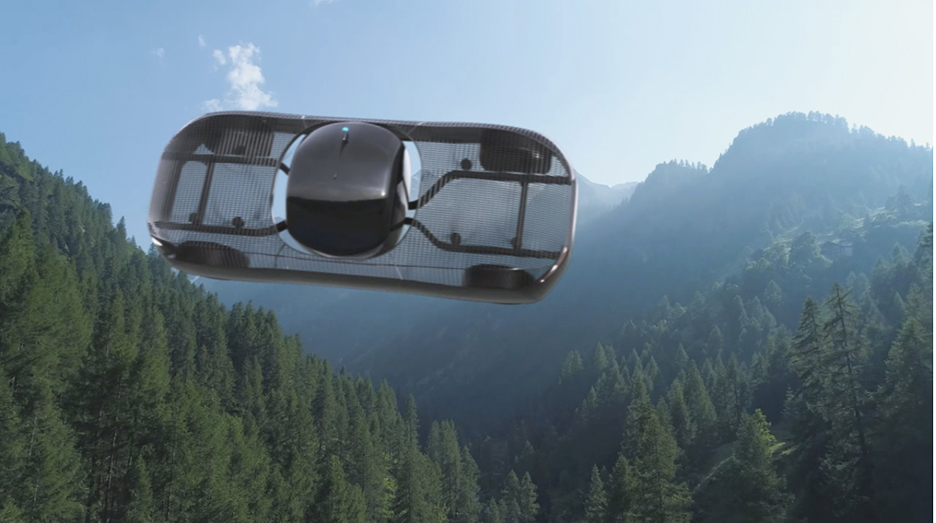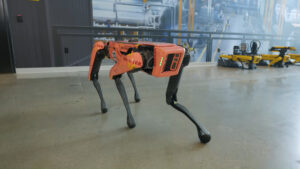For over a hundred years, inventors have promised that flying cars are right around the corner. Aircraft and automobile engineers like Henry Ford, Glenn Curtis, and Norman Bel Geddes all tried to design one, but they failed to catch on (or work). The flying car glides through the skies of classic science fiction properties such as The Jetsons or The Fifth Element, but they remain trapped in the confines of fiction.
But California startup Alef Aeronautics Inc claims they’ve finally built one. Your retro-futurist dreams may not be so hopeless.
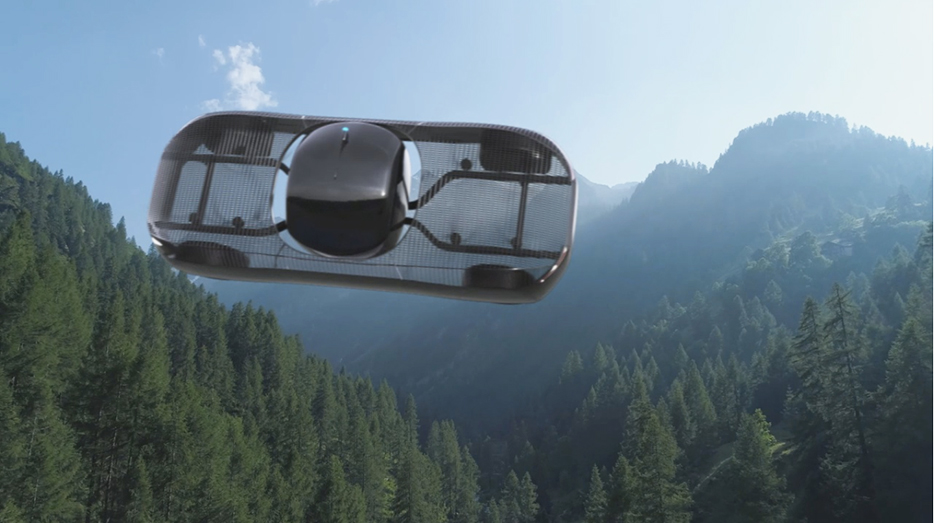
In 2019, a simple version of the Model A took its first test flight over California. Photo: Alef Aeronautics
Vertical takeoff
Alef has dubbed it the Model A and promises that it will solve modern traffic congestion. Americans will try literally anything to avoid investing in public transport. Cynicism aside, it’s a compelling pitch: you can drive the Model A down the street, then, as they describe it, “take off vertically when needed and fly above traffic.”
The two-seater Model A doesn’t need a runway to take off and can fly 177 kilometers between charges. Alef envisions faster and easier commutes for city dwellers. They’re also billing it as an affordable vehicle, which I would say is debatable. Its expected launch price is $299,999, and pre-orders are open.
The 3,200 eager customers who’ve already placed those orders will have an additional hurdle before they can pull a James Bond and jump over traffic. An announcement by the Federal Aviation Administration (FAA) in 2024 established that everyone will require certification before taking the wheel (or throttle) of a flying car. Considering the dangers and pitfalls of early aviation history, they’re right to be cautious about a new age of personal air travel.
While the FAA is working on specific regulations for flying cars, users will need to get a Private, Commercial, or Airline Transport pilot’s license. Without one, they can only use their flying car as a very slow, expensive regular car. It can only reach speeds of about 40km per hour, so no highways.
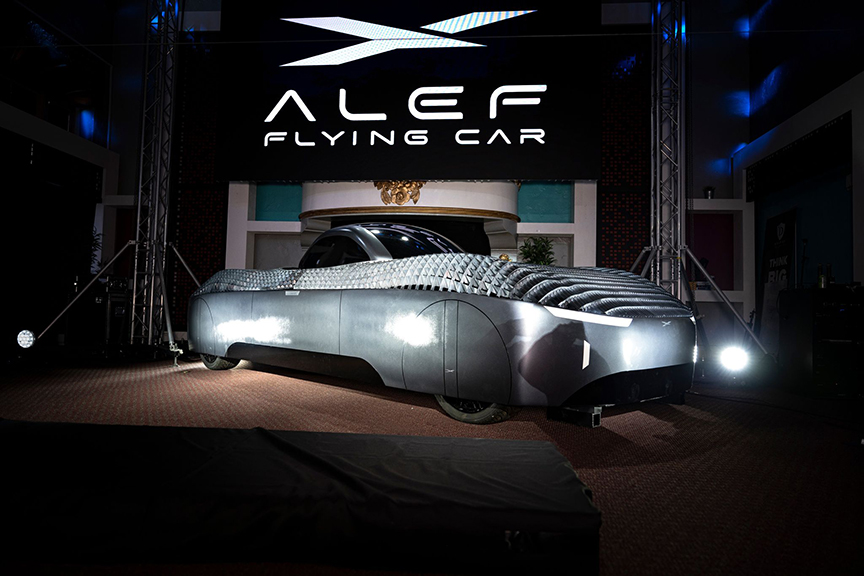
Photo: Alef Aeronautics
Designed on a napkin
Undaunted by a century of false starts, the inventors behind Alef didn’t imagine flying cars would be very difficult to build. Palo Alto-based inventors, engineers, and aspiring entrepreneurs Dr. Constantine Kisly, Pavel Markin, Oleg Petrov, and Jim Dukhovny devised the idea in 2015. They met in a cafe, drew a design on a napkin, and estimated the thing could be built in around six months.

The four founders, Dr. Constantine Kisly, Pavel Markin, Oleg Petrov, and Jim Dukhovny talk about the flying car at Draper University in 2018. Photo: Alef Aerodynamics
The first full-scale prototype flew in 2019. So, the timeline was off, but investors present at the test flight didn’t mind. What they saw was promising enough to win the team more funding. For the visual design, Alef hired Swedish designer Hirash Razaghi, who’s worked with Bugatti and Jaguar.
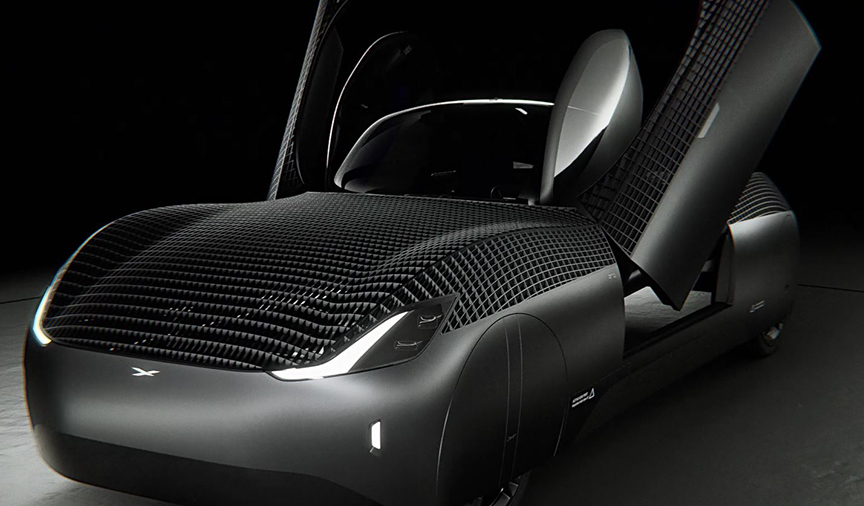
A render of the Alef Model 5 ‘Flying Car.’ Photo: Alef Aeronautics
Alef isn’t the only tech startup working on the flying car. What models like the Jetson ONE, Aeromobil 4.0, or SkyDrive’s eVTOL SD-03 don’t do, however, is look like cars. Aesthetically, they’re more like drones with seating or very small, sleek helicopters. Alef CEO Jim Dukhovny insists it is “wrong [to start]…calling everything a flying car.”
Alef plans to deliver the first Model A flying cars in 2026. It remains to be seen whether they will take off with consumers.
